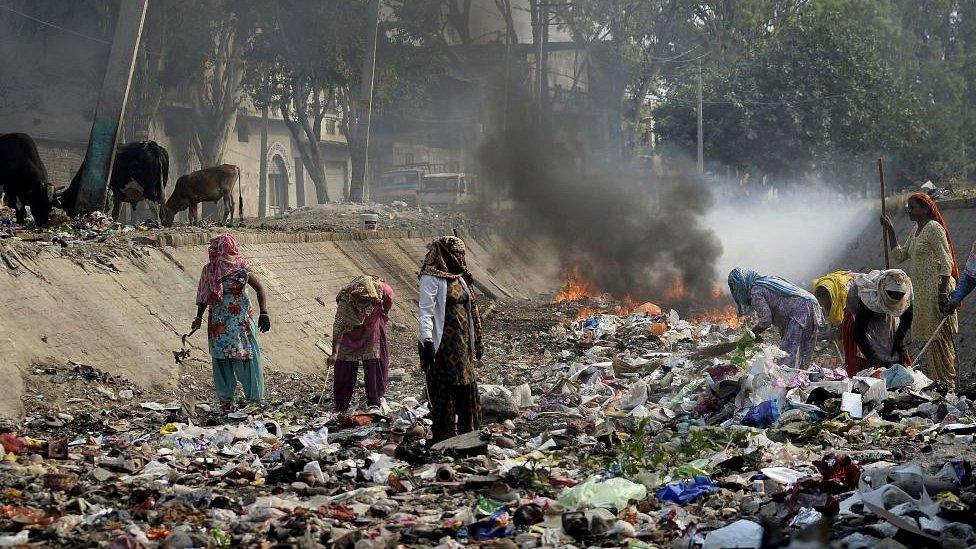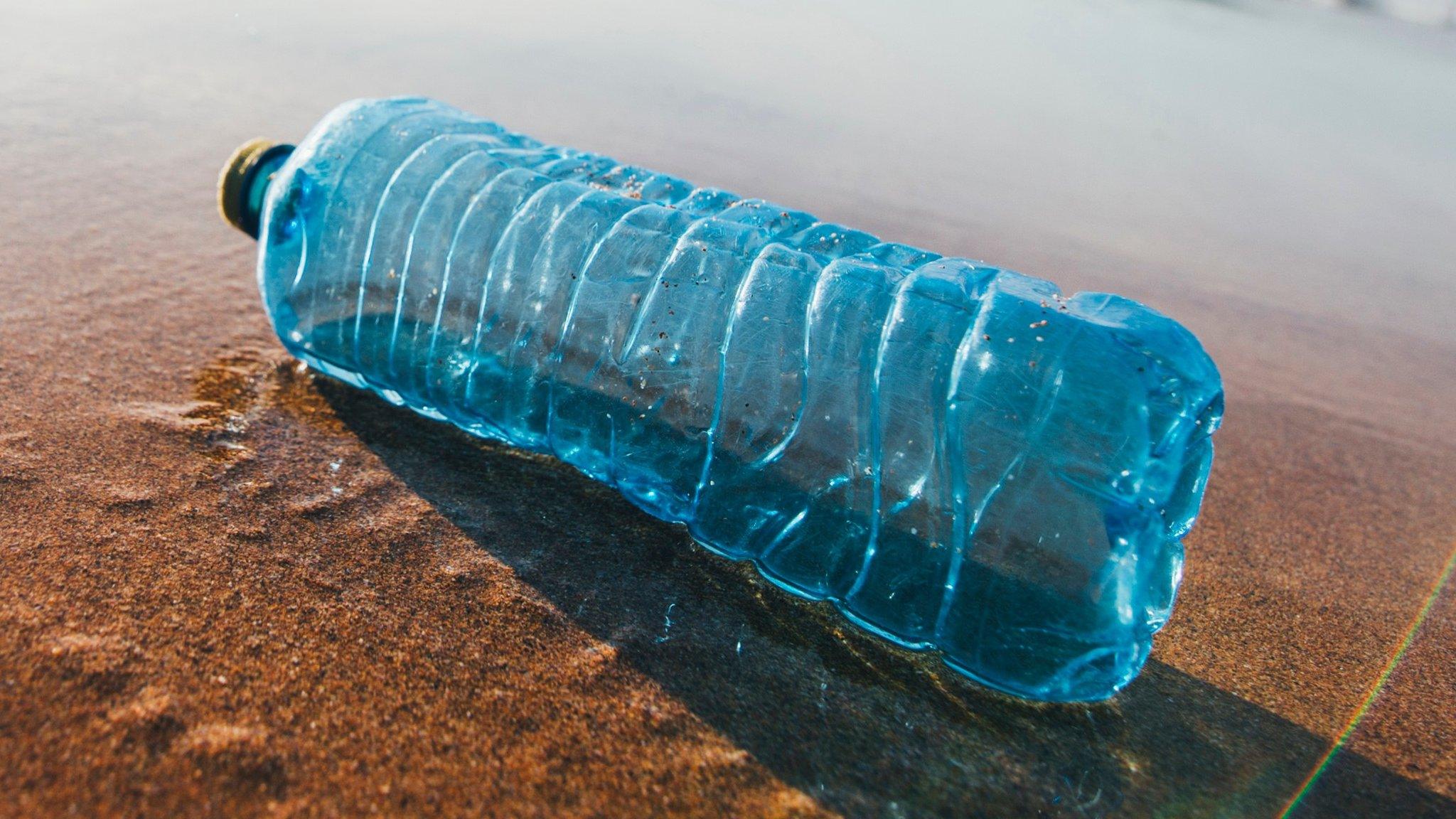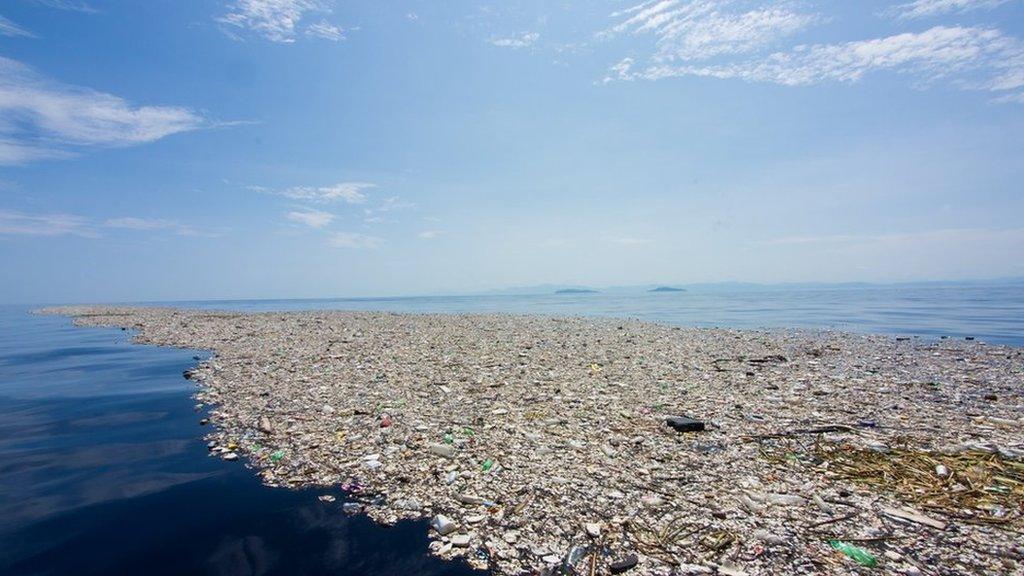Plastic pollution: David Attenborough backs new report that shows huge impact on human health as well as on wildlife
- Published
- comments

TV presenter and naturalist Sir David Attenborough is backing a report out today that demonstrates the huge impact of plastic pollution on developing countries.
The report's authors say it's the first time the impact of plastic pollution on people - not just wildlife - has been studied.
The study shows that many people in the poorest parts of the world are getting ill and dying from diseases caused by the burning of rubbish and plastic near their homes.
Researchers found that between 400,000 and a million people die each year from diseases like diarrhoea, malaria and cancer caused by living near uncollected waste and plastic pollution.
That's because when rubbish isn't collected it builds up in rivers and causes flooding to places where people collect water, which leads to diarrhoea and other diseases.
Often the only way to dispose of waste in developing countries is to burn it in the streets, resulting in fumes that are extremely damaging to health.
And, in many countries this burning of rubbish is the single largest source of carbon emissions, contributing to climate change.
Children inspired by Attenborough deliver plastic protest letters to Downing Street
Sir David Attenborough said "This report is one of the first to highlight the impacts of plastic pollution not just on wildlife but also on the world's poorest people,"
He said: "It is high time we turn our attention fully to one of the most pressing problems of today - averting the plastic pollution crisis - not only for the health of our planet, but for the wellbeing of people around the world."
Newsround finds out why plastic is a problem (Pictures from Greenpeace, Caroline Power and Blue Planet II/BBC iPlayer)
The authors of the report (Tearfund, Fauna & Flora International, The Institute of Development Studies and WasteAid) want international companies to cut the amount of single-use plastic products they produce and sell in developing countries by half by 2025.
Amongst these products are every-day items such as clothes washing liquid, shower gel, bottled drinks and food packaging.
Sir David will introduce the report later today at a news conference in London.
- Published17 March 2020

- Published14 January 2019

- Published5 March 2019

